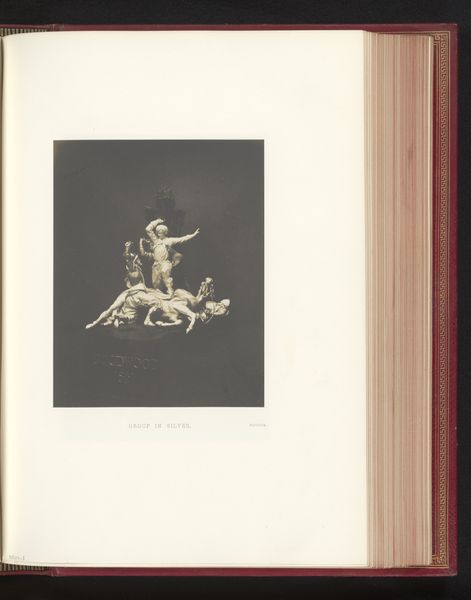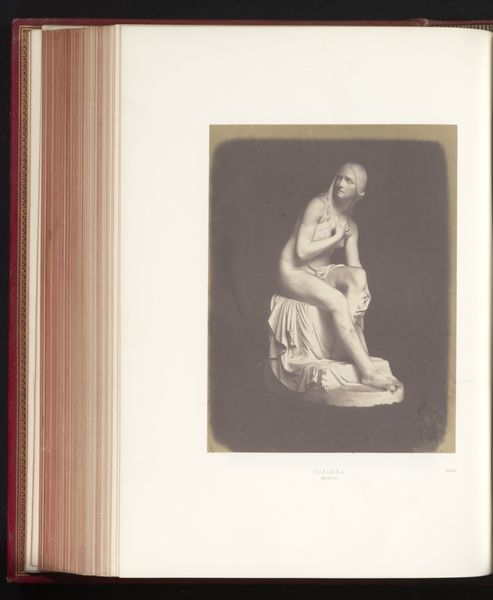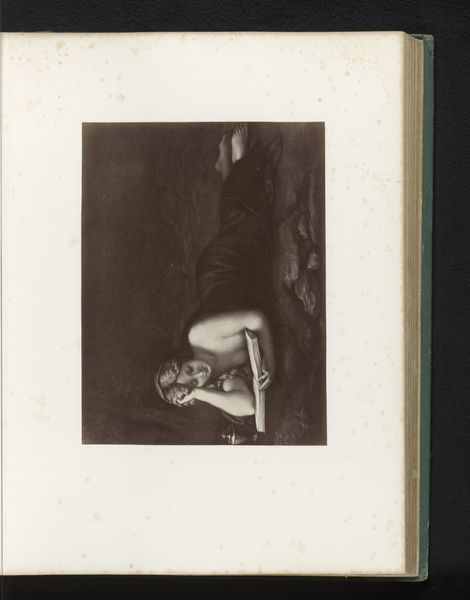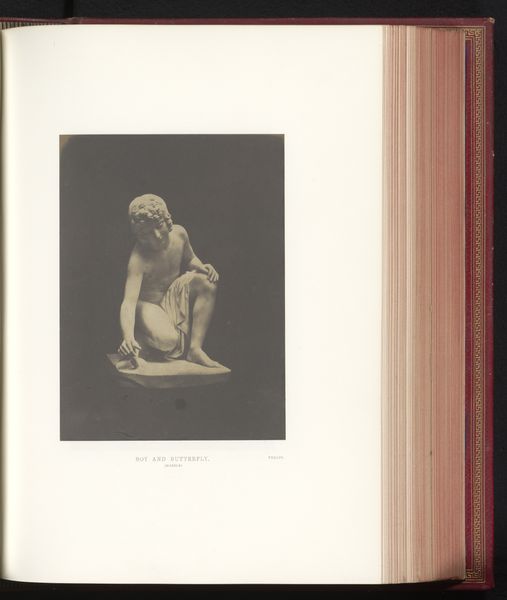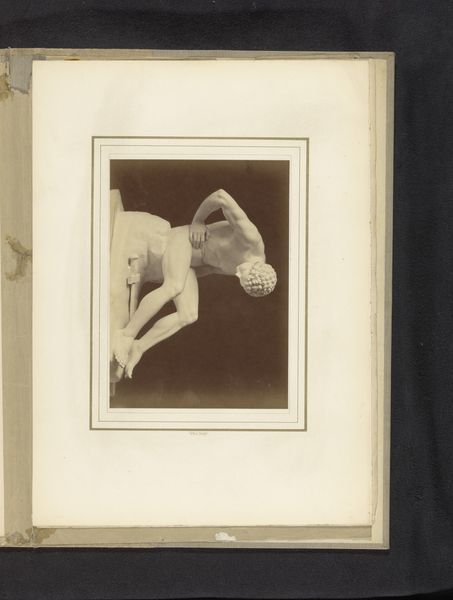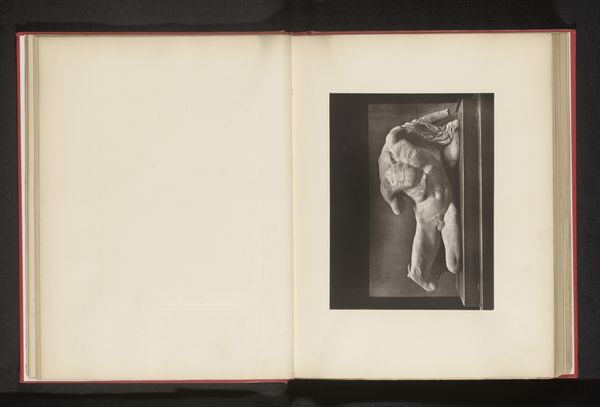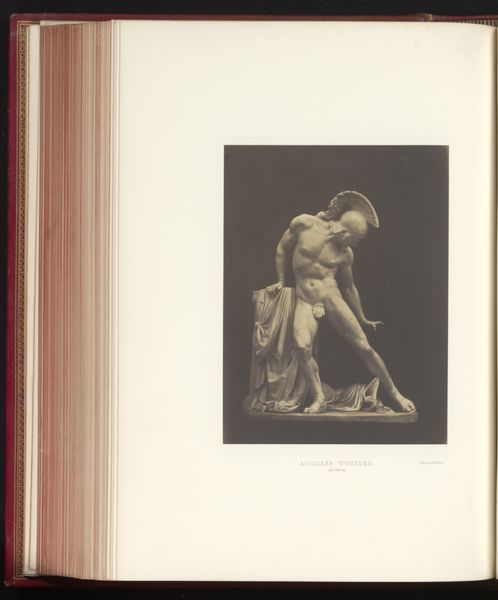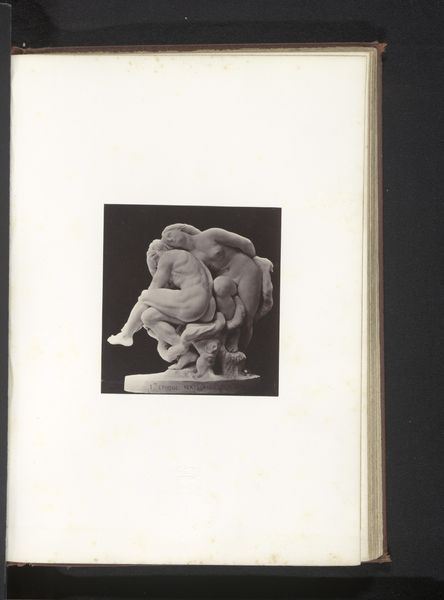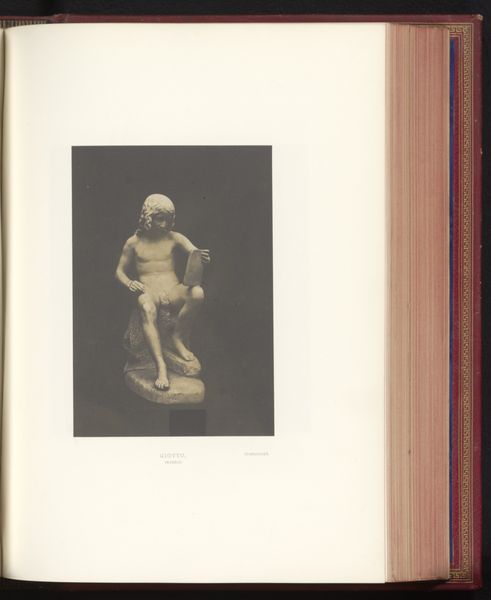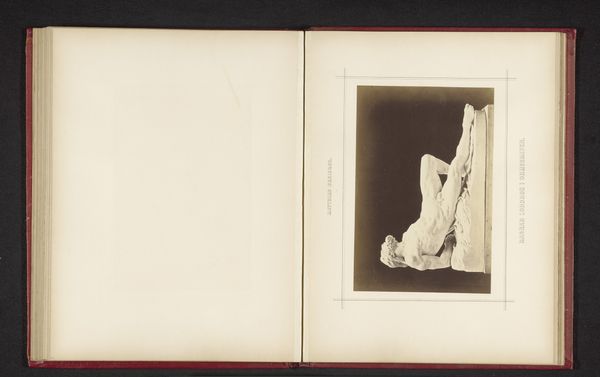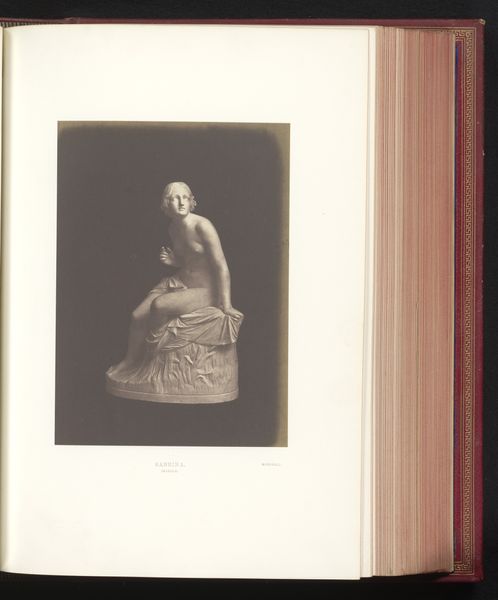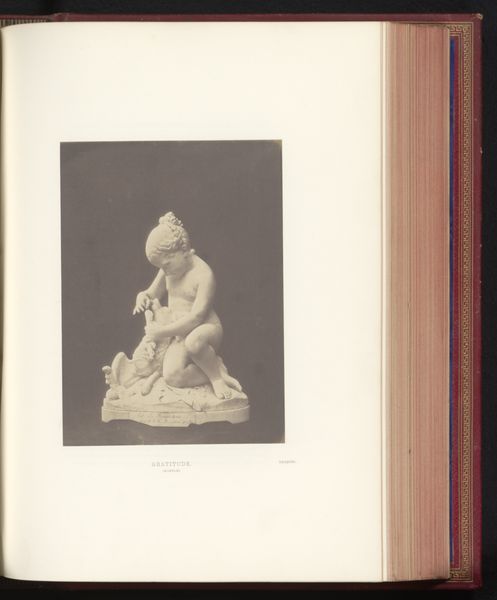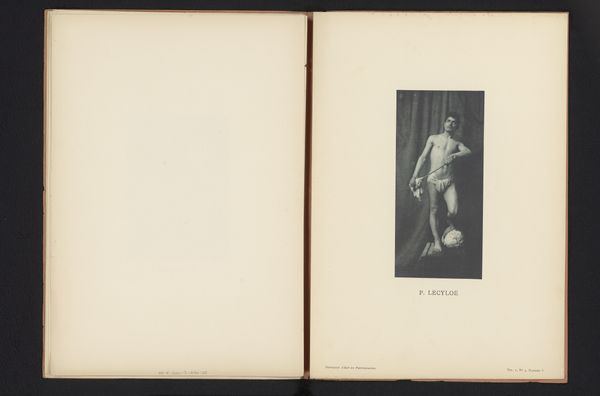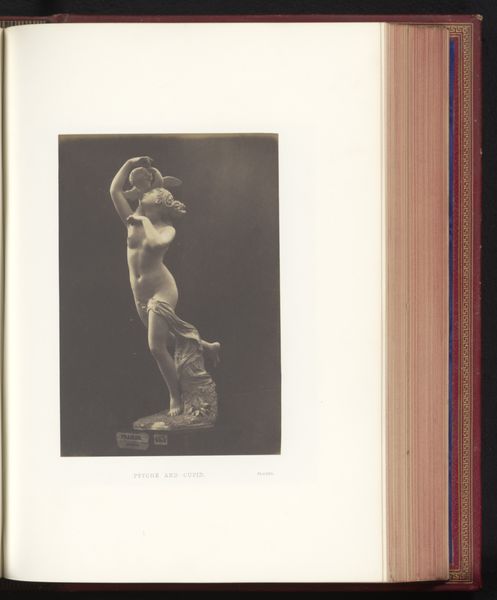
Sculptuur door John Gibson, voorstellend een jager en zijn hond, tentoongesteld op de Great Exhibition of the Works of Industry of All Nations van 1851 in Londen 1851
0:00
0:00
sculpture, marble
#
sculpture
#
greek-and-roman-art
#
classical-realism
#
figuration
#
sculpture
#
history-painting
#
academic-art
#
marble
#
nude
Dimensions: height 223 mm, width 171 mm
Copyright: Rijks Museum: Open Domain
This photograph by C.M. Ferrier and F. von Martens documents John Gibson's sculpture depicting a hunter and his dog, which was exhibited at the Great Exhibition of 1851 in London. The sculpture was showcased during a time when the British Empire was at its peak, and the exhibition was a celebration of industrial progress and cultural achievements. Gibson, a British sculptor known for his neoclassical style, presents a romanticized and idealized vision of classical antiquity that was in line with the imperial project. The hunter, depicted nude and muscular, embodies a certain masculine ideal, a visual representation of power and dominance. However, by focusing on the relationship between man and animal, Gibson also hints at the power dynamics inherent in these relationships. The dog, a symbol of loyalty and servitude, is placed beneath the hunter's hand, emphasizing the control and authority the hunter holds. This dynamic invites us to reflect on other societal structures of power and control in the Victorian era, such as those based on class, gender, and race.
Comments
No comments
Be the first to comment and join the conversation on the ultimate creative platform.
